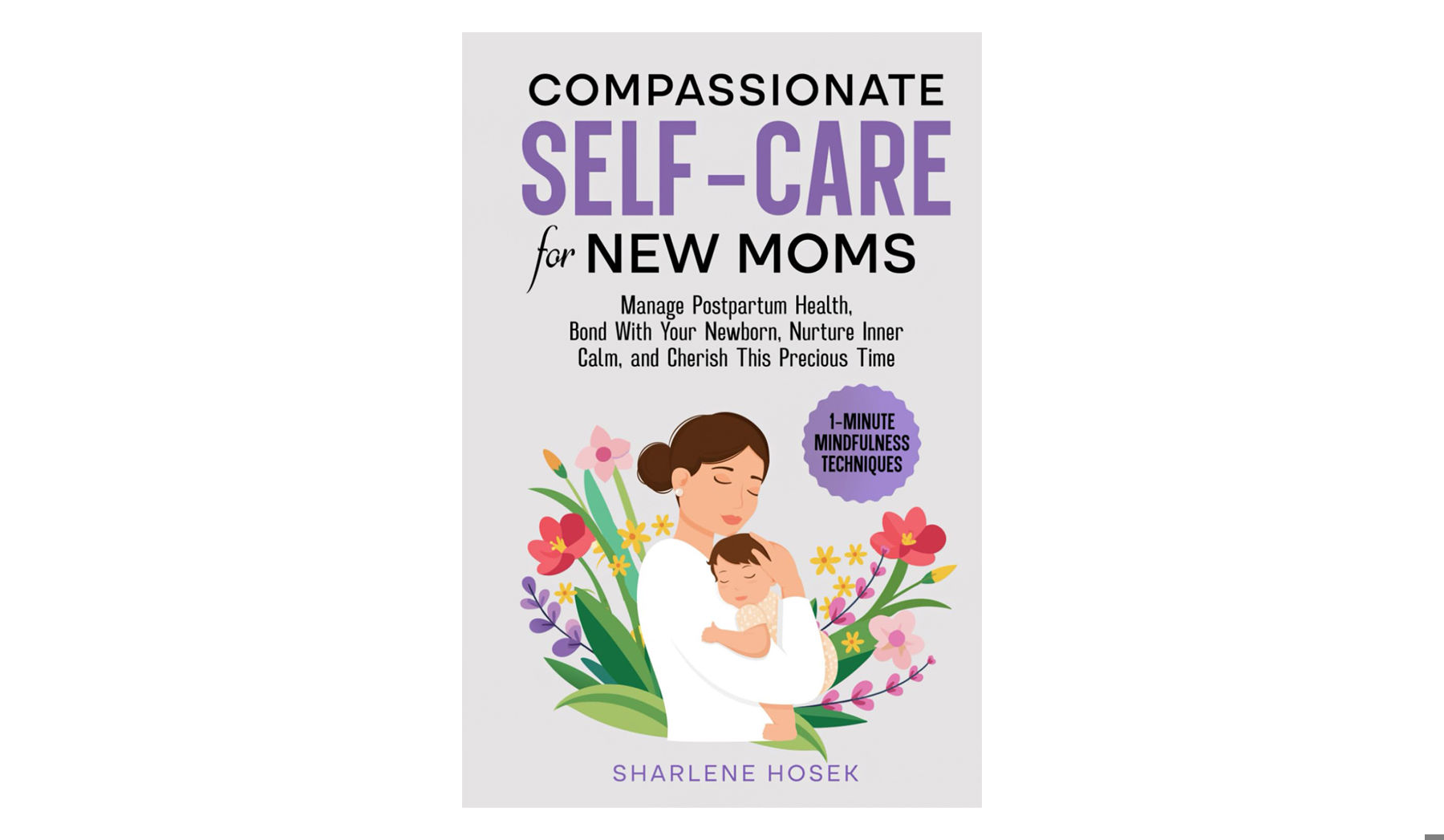Maternal Mental Health

Get started on your parenting journey with feeding essentials, changing must-haves and other handpicked goodies from leading baby brands, worth over $90! Now you can upgrade to a Boy or Girl box!

Get started on your parenting journey with feeding essentials, changing must-haves and other handpicked goodies from leading baby brands, worth over $90! Now you can upgrade to a Boy or Girl box!
Becoming a parent is an incredible journey, but it also comes with its fair share of challenges, especially when it comes to finding time to focus on your own mental health.
It's easy to get caught up in the whirlwind of pregnancy aches and pains, labor and delivery, diaper changes, sleepless nights, and new routines, but your mental well-being is just as important as everything else. Taking small steps to care for yourself can make a big difference, helping you feel more balanced and prepared to handle the ups and downs of parenthood.Taking care of your mental health doesn’t always have to involve big, complicated changes if that isn’t what’s needed. In fact, small steps can often have a big impact. Try carving out little moments during your day, whether it’s a few minutes to enjoy your favorite snack or a quick walk in the fresh air. Being mindful of getting as much sleep as possible (we know it’s often easier said than done with a baby!) and taking short naps when your baby sleeps can also make a world of difference. It might be tempting to ignore your own sleep deprivation, but that can have dangers, so take a nap!
It’s also about being kind to yourself. You’re learning and growing as a parent, and it’s okay if everything isn’t perfect. Don’t be afraid to ask for help if you need it, and try not to compare yourself to others. Every parent’s journey is different, and taking small steps to look after yourself can make a big difference in how you feel. You’ve got this!
If you're still preparing for birth and wondering how you can best consider yourself emotionally, check out our Ultimate Guide to Pregnancy Self-Care.
Taking time for yourself can be tough as a new or expecting parent, but even small activities can make a big difference in how you feel. Gentle movement, like a walk in the park or some relaxing prenatal yoga, can work wonders for clearing your mind and lifting your mood. Even just 10 minutes of "me time" with a cup of tea and a good book or some mindful breathing can help you reset when things feel overwhelming.
Socializing with others is also a great way to boost your mental health. Joining a baby group or a prenatal class is a fabulous way to connect with others who are going through the same thing, helping to ease any feelings of isolation. Sharing your experiences, laughing, or even having a little time to vent can take a weight off your shoulders. Remember, you’re not alone in anything that you go through!While life with a baby can feel unpredictable, creating a gentle routine can bring a sense of calm and structure to your day. It doesn’t have to be rigid, but setting up a few consistent habits—like getting up at the same time each morning, fitting in a daily walk, or having a set bedtime routine for your little one—can help you feel more in control.
For your baby, a daily routine can be really helpful too. Over time, they’ll begin to recognize the cues for sleep, feeding, and playtime, which can lead to more settled days (and nights). Having a bedtime routine for your baby can support better sleep, which is good news for both of you! The key is to stay flexible and adapt as needed, making sure that the routine works for you and your family.
Returning to work after maternity leave is a big transition for any parent. Whether you’re excited, anxious, or a little of both, it’s completely normal to feel overwhelmed as you adjust to a new routine that balances work with life at home with your baby.
One of the biggest challenges is managing your time between work and home life. You might feel pulled in different directions—trying to keep up with your job responsibilities while also meeting the needs of your baby. It’s important to try and establish a routine as soon as possible that allows you to separate the two, so you can be present for both.
Setting clear boundaries for work hours and home time can help. For example, if you’re working from home, create a designated workspace and stick to a start and finish time where you close your work laptop. This not only helps with focus but also ensures you can switch off and be fully there for your baby after the workday ends.
Many parents also struggle with guilt during this transition—feeling like they’re missing out on time with their baby or not giving their best at work. This is completely normal, but it’s important to remember that you’re doing your best, and it’s okay to lean on your support system.
If possible, talk to your manager or HR about flexible working hours or staggered days to help ease the transition. Some parents find that a gradual return to work—starting part-time or working from home for a few days a week—makes it easier to settle into a new routine. If you are breastfeeding while working outside the home, know your rights and communicate with your employer, if needed, to make your pumping plan ahead of time.
It’s also important to give yourself grace throughout this time. You and your baby are both adjusting, so, naturally, things might feel a little chaotic at first. Over time, you’ll find what works best for you, whether that’s syncing your schedule with your baby’s naps, or using childcare to create focused work hours.
Don’t hesitate to ask for help when you need it, and remember that your routine will evolve as you and your family grow. You’ve navigated maternity leave so well, and this next step is just the next stage of your life together as a family.During the perinatal phase, maintaining open and honest communication with your partner or spouse is essential for nurturing both your mental health and the health of your relationship. The emotional and physical changes that come with pregnancy, childbirth, and postpartum recovery can feel overwhelming, and having a strong support system in place can make a world of difference. It's important to express your feelings, whether they’re ones of joy, anxiety, or frustration, without fear of judgment. When both partners actively listen, validate each other's emotions, and offer reassurance, it creates a safe space where you can lean on each other, share responsibilities, and navigate the highs and lows together.
Equally important is being open about your needs—whether it’s help around the house, more emotional support, or simply a little extra space to recharge. It’s natural to feel vulnerable, and it’s okay to ask for what you need. A partner who is aware of your struggles and actively engages in finding solutions can help reduce feelings of isolation or overwhelm. By keeping the lines of communication open and prioritizing each other’s mental health, you strengthen your bond and build a foundation of trust and partnership that benefits both parents and the baby. This connection can also serve as a buffer against stress and anxiety, providing a sense of unity and calm amidst the challenges of the perinatal period.
Maintaining open communication with your in-laws, coworkers, and other key people in your life is also important. While your partner is your primary source of support, having a network of understanding family and colleagues can also make a significant difference in your mental health and overall well-being. Setting clear boundaries with in-laws about expectations and involvement—whether it’s around visiting, offering help, or giving you space—can help prevent misunderstandings and reduce unnecessary stress. Similarly, at work, being transparent about your needs, whether it’s adjusting your schedule, taking time for self-care, or managing workload expectations, ensures that you don’t feel pressured or overwhelmed during a time that already feels full of changes. By communicating openly with those outside of your immediate household, you help create a supportive environment that allows you to focus on what matters most: your health, your family, and your well-being.
Parenthood is an emotional rollercoaster, and it’s completely normal to feel a wide range of emotions. While some days will be filled with joy and excitement, others might bring stress, anxiety, or even sadness. If you’re feeling overwhelmed, it’s important to know that you’re not alone—many new and expecting parents face similar challenges.
Understanding some of the common mental health concerns that can pop up during pregnancy and in the early months of parenthood can help you recognize when to reach out for support. In this section, we’ll explore common concerns like anxiety, depression, and birth trauma, and how you can find the help you need.Feeling a bit anxious as a new or expecting parent is pretty normal—there’s a lot to think about and a lot of new responsibilities to juggle! However, if your worries start to take over and you’re constantly on edge, struggling to relax, or feeling overwhelmed by fears (especially around your baby’s safety), it might be a sign of postpartum anxiety.
Anxiety can show up in lots of different ways, like racing thoughts, trouble sleeping, or even physical symptoms like a racing heart. It’s important to speak to your GP or health practitioner if anxiety is making it hard for you to enjoy parenthood. Don't hesitate to reach out—there’s plenty of support available, and you deserve to feel calm and confident during this remarkable time.
It’s normal to experience a range of emotions during pregnancy and after giving birth, but if you’re feeling persistently low, tearful, or disconnected from your baby, it might be more than just the "baby blues." Prenatal depression and postpartum depression are two separate concerns that many parents experience, and recognizing the signs early on can help you get the support you need.
Symptoms can include feeling hopeless, losing interest in things you once enjoyed, or feeling unable to bond with your baby, but it can look different for everyone. The good news is, there are plenty of ways to manage this and get the help you need.
Don’t suffer in silence—reach out to your GP or health practitioner for advice. There’s no shame in asking for help, and taking care of your mental health is key to being the best parent you can be.
For some new parents, anxiety takes the form of obsessive thoughts or compulsive behaviors—this is known as perinatal OCD. You might find yourself stuck in a cycle of intrusive thoughts, like worrying constantly about your baby’s safety, even when there’s no real danger. This can lead to repetitive actions, like checking on your baby again and again, in an attempt to ease the anxiety.
If this sounds familiar, you’re not alone. Perinatal OCD can be very distressing, but it is treatable. TYou should seek help if these thoughts and behaviors are affecting your daily life or your bond with your baby. With the right support, you can break free from the cycle of worry and enjoy your time with your baby more fully.Tokophobia is an intense fear of pregnancy and childbirth, and for some women, this fear can be overwhelming enough to cause serious distress. Whether it’s the fear of the physical pain of childbirth, worries about potential complications, or deep anxiety about the process of pregnancy itself, tokophobia can affect both women who have never been pregnant and those who have experienced a difficult or traumatic birth in the past.
This condition is more common than you might think, and it’s important to know that you're not alone if you're feeling this way. Some women with tokophobia might avoid becoming pregnant altogether, while others may experience extreme anxiety during pregnancy.
Tokophobia is a real and valid condition, and it’s important to address your fears early so that you can receive the support and reassurance you need to make decisions that feel right for you. Whether you’re planning for a future pregnancy or already expecting, seeking help is a positive step towards feeling more in control and confident about the process.
Though rare, some new parents may experience a serious mental health condition called postpartum psychosis. This usually develops in the first few weeks after giving birth and can cause extreme mood swings, hallucinations, and delusions. You might feel unusually energetic, elated, or, on the flip side, deeply confused or paranoid.
These symptoms are much more intense than the “baby blues” or even postpartum depression, and postpartum psychosis is considered a medical emergency.
If you or someone close to you notices these symptoms, it’s really important to seek immediate help. Your health practitioner can help you seek specialist treatment, often involving a combination of medication and hospital support, to ensure you and your baby are safe.
The good news is that with the right treatment, most people recover fully from postpartum psychosis. If you’re worried about any of these symptoms, trust your instincts and reach out to your GP or a healthcare professional as soon as possible.
The experience of giving birth doesn’t always go as expected, no matter how much time and thought you put into how you’d like it to go. For some parents, a difficult or traumatic birth can lead to lasting emotional effects.
If you’re struggling with flashbacks, nightmares, or intense anxiety following a difficult birth, you might be dealing with birth trauma or even post-traumatic stress disorder (PTSD). This can happen after an emergency C-section, difficult labor, or complications during delivery that leave you feeling frightened or powerless.
It’s important to know that if you’ve experienced a traumatic birth, it’s not your fault, and help is available.
It can also be really helpful to talk through your birth story with a midwife or healthcare professional who can offer reassurance and guidance. Remember, your feelings are valid, and it’s okay to seek help if you’re struggling to move past your birth experience.
While we often hear about postpartum depression or anxiety, not everyone is aware that some new parents can experience sudden, intense feelings of anger—often referred to as postpartum rage. You might find yourself feeling irritable or angry over seemingly small things, and then feel guilty or confused afterwards. These feelings can catch you off guard, especially when parent life is often portrayed as being all about joy and calm.
Postpartum rage is often linked to hormonal changes, sleep deprivation, and the stress of caring for a newborn. If you’re feeling this way, you’re not alone, and it doesn’t make you a bad parent in any way. Talking to a healthcare professional, like your GP or health advisor, can be a great first step in managing these emotions. Therapy or joining a support group can also help you work through any unresolved feelings. The key is to be kind to yourself and seek support early—anger is a valid emotion, but it shouldn’t take over your experience of parenthood.It’s not just moms who can face mental health challenges during pregnancy and after a baby is born—dads and partners can struggle too. Becoming a parent is a massive life change, and it’s normal for dads to feel stressed, anxious, or overwhelmed. Studies show that around 1 in 10 new dads experience postnatal depression. Men might also experience anxiety, panic attacks, or feel disconnected from their partner and baby, especially as they adjust to new roles and responsibilities.
Mental health struggles in dads can sometimes go unnoticed, as they might feel pressure to "stay strong" or not talk about their feelings. But it’s really important for dads to recognize that they deserve support too.
Opening up to a partner, friend, or healthcare professional can make a huge difference. Parenthood is a team effort, and both parents’ mental health is vital for a happy, healthy family.
Read More: Dads Get PPD Too- Part 1 and Part 2
With so many changes, it can be tough to know when your feelings are just part of the adjustment or when they might signal something more serious. That’s why understanding the signs and symptoms of maternal mental health concerns is so important.
Being aware of what to look out for can help you or someone close to you get the right support, faster.
If your birth experience was tough or didn’t go as planned, you might feel shaken or distressed. However, if those feelings start to interfere with your daily life, you could be experiencing birth trauma or post-traumatic stress disorder (PTSD).
Common symptoms include reliving the birth through flashbacks or nightmares, feeling detached from reality, avoiding reminders of the birth, and even struggling to bond with your baby.
If this sounds familiar, it’s important to seek help. The key thing is to remember you’re not alone, and there’s support available to help you recover and enjoy your time with your baby.
A little bit of worry is completely normal for new and expecting parents, but when those anxious feelings start taking over, it’s time to take action. Anxiety might show up as constant worrying about your baby’s safety, racing thoughts, or even physical symptoms like a racing heart or trouble sleeping. You might find yourself feeling restless, easily overwhelmed, or unable to switch off, even when you’re exhausted.
If this sounds familiar, don’t wait to get help. There are many great options for managing anxiety, including talking therapies like CBT and mindfulness techniques to help calm your mind. Simple breathing exercises can also make a world of difference when you’re feeling on edge.Parenthood is a rollercoaster, and it’s normal to feel up and down. But if you’re feeling persistently low, exhausted, or disconnected from your baby, it could be more than just the usual ups and downs. Depression can leave you feeling hopeless, drained of energy, and struggling to keep up with daily tasks. Changes in sleep and appetite, as well as difficulty bonding with your baby, are also common signs.
If you’re feeling this way, know that you don’t have to keep it to yourself. There are different types of talking therapies and other support to help you start feeling better. It’s important to reach out early—there’s no shame in getting the help you need to enjoy this special time with your baby.
While perinatal mental health issues can affect anyone, certain factors might make you more likely to experience them.
If you’re at higher risk, it’s a good idea to talk to your healthcare provider early on. They can help you access support to keep things on track before symptoms get worse. By being proactive, you can set yourself up for a smoother experience with fewer bumps along the way.
Some signs of maternal mental health issues aren’t always obvious, and it’s easy to brush them off as part of the new parent experience. Irritability, anger, or feeling disconnected from your baby are often overlooked but can be just as serious as feelings of sadness or worry. Some parents feel emotionally numb or like they’re going through the motions without really feeling engaged.
If something feels “off” in any way, don’t ignore it. Even if your symptoms don’t fit the usual picture of anxiety or depression, it’s important to talk to someone—whether it’s a friend, family member, or healthcare professional. Trust your gut and reach out if things don’t feel right.
When you’re dealing with mental health struggles during pregnancy or after having a baby, it can feel overwhelming trying to figure out where to turn. The good news is that there are lots of resources out there ready to help—whether you need professional medical advice, a friendly chat with someone who’s been there, or local support options to make life a little bit easier.
If you’re finding things tough, the first step is to chat with your GP, midwife, or health advisor. They’re there to support you, and they can help you access services designed specifically for new and expecting parents struggling with their mental health. This might include talking therapies like CBT or medication if it’s needed. The important thing is to reach out sooner rather than later—getting help early can make a big difference.
Don’t be afraid to speak up about how you’re feeling. Your healthcare provider can refer you to mental health teams who are experts in supporting parents through conditions like anxiety, depression, or birth trauma. You deserve to feel supported, and your medical team is there to help you every step of the way.It can be hard to open up to those closest to you, but talking to family and friends about your mental health can be a huge relief. Whether it’s sharing how you’re feeling or asking for practical help, your loved ones are often more than happy to support you—they just might not know how to help, or that you need help, unless you tell them.
Let them know what you need, whether it’s a bit of help with the baby, someone to listen, or even just some time to yourself. Remember, there’s no shame in asking for help—raising a baby is a team effort, and your mental health matters just as much as your baby’s wellbeing.
Sometimes, getting the right help means pushing a little harder for what you need. If you feel like your concerns aren’t being taken seriously or you’re not getting the support you deserve, don’t hesitate to speak up. It’s important to trust your instincts—if something doesn’t feel right, ask for a second opinion or seek further support.
Knowing your rights and understanding what’s available to you can make it easier to advocate for yourself. If you’re unsure where to start, charities like Families USA, The Maternal and Child Health Bureau, and The National Alliance on Mental Illness offer advice on how to navigate the healthcare system and make sure your voice is heard. You know yourself best, and you deserve to feel supported throughout your parenting journey.The information on the Your Baby Club website is not intended to be a substitute for professional medical advice, diagnosis or treatment. Always discuss any health concerns with a qualified healthcare provider and carefully review all guidance that comes with any medications or supplements before taking.







